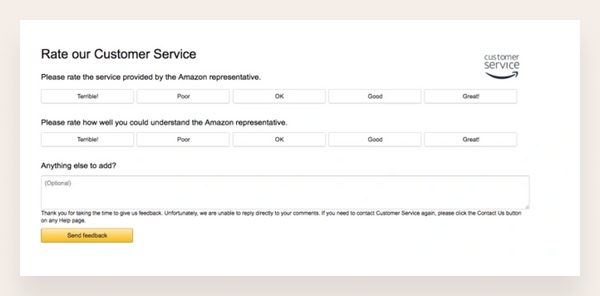The entire customer journey has evolved over the years as a reflection of technology. What might have started as in-person shopping for a truly personal experience became no interaction as the experience went online, to finally, the rise of conversational marketing in eCommerce.
Chatbot-based interactions, for example, are estimated to generate $112 billion in retail sales in 2024. This indicates success in implementing conversational marketing in eCommerce.

Image source: Pexels
What is conversational marketing for eCommerce?
Conversational marketing falls under inbound marketing, which builds customer loyalty by tailoring content and buyer experiences to your audience's needs. With conversational marketing, you can personalize the buyer journey with powerful tools that engage the user in real-time conversations.
These tools speak with customers using natural language processing (NLP) to ensure communication feels more like a human interaction.
Conversational marketing examples
Cultivating customer relationships is important to guiding prospecting customers down the sales funnel. Approaching this with conversational commerce is a great way to kick off meaningful conversations on your platform, chat about your products, and influence their purchase choice. There are a few ways to conduct conversational marketing.
Chatbots and messaging apps
Chatbots and messaging apps are programs powered by machine learning (ML) and natural language processing (NLP). They are designed to accomplish basic tasks and are often seen to have prepared answers to specific questions and can offer multiple options as an answer.
Voice assistants
Voice assistants are commonly seen in devices like Amazon's Alexa, Google Home, and Apple's Siri. This technology works as AI-powered bots that use voice recognition to interpret and respond to a customer's questions. They offer hands-free convenience and accessibility for a wider audience.
Virtual assistants
Virtual assistants are more advanced versions of standard chatbots. These AI bots offer more complex features, like responding to more detailed queries and providing further recommendations.
How conversational marketing supports eCommerce businesses
Implementing a conversational marketing strategy for your eCommerce website offers several benefits. This ranges from converting more leads to enhancing customer relationships, and even scaling your business more effectively.
Let's take a more detailed look at these benefits.
1. Personalized product recommendations
The shopping experience can impact your customer's decision to purchase and potentially repurchase from your business. With conversational marketing, you can offer product recommendations and other useful information based on your customer data.

Image source: Amazon
This can prove helpful in meeting the current buyer expectation. Based on Drift's report, personalized conversations are a necessity for the customer journey. Buyers' who want a seamless personalized purchasing process have shot up by 26%, with more and more people seeking an experience catered to their preferences.
2. Improves customer engagement
Engaging customers not only keeps them on your website longer, it allows you the opportunity to offer more products and services they might be interested in.
Using a conversational marketing method like chatbots, for example, can significantly improve customer engagement. Tidio saw at least 29% of customers seek 24/7 help from chatbots to assist them in purchases.
3. Boosts customer satisfaction

Image source: Amazon
One of the biggest benefits of conversational marketing includes a higher customer satisfaction rating. Because chatbots and AI assistants offer real-time interactions for simple inquiries, they can assist customers in making purchase decisions and effectively build customer loyalty.
Significantly, Tidio's findings saw 69% of customers being satisfied with their chatbot conversation. With more advancements in technology, customer satisfaction can prove to soar even higher soon.
4. Supports the customer lifecycle

Image source: Hubspot
Conversational commerce has the power to convert leads into full purchases. This is aided by any product upsell that conversational marketing tools might offer. Customer interactions with chatbots can then reduce the chance of customers abandoning their carts.
Because conversational marketing offers round the clock availability. This means it can help the sales team and in ensuring the sales process and entire customer lifecycle is completed.
5. Adapts and constantly improves
Artificial intelligence (AI) and machine learning (ML) enable chatbots and virtual assistants to learn and continue to improve services based on conversations with existing customers.
Every customer interaction offers insights into customer preferences. Conversational marketing tools can collect valuable data that can inform how you can further refine your inbound marketing strategy and further support your customer journey.
6. Highly scalable and efficient
When your business is growing, it's important your communication channels stay open and scale with you. Conversational marketing enables businesses to expand seamlessly with the right support. Tidio's study discovered that as much as 74% of business owners shared that chatbots helped them achieve their business goals.
Employing the use of chatbots, virtual assistants, and other messaging apps enable your business to manage multiple customer conversations simultaneously. Not only do quality leads get answers to their questions, but you can also benefit from more happy customers who make the purchase after deciding.
7. Cost-effective
Automated messaging can help you provide instant responses to multiple customers without the added effort and extra cost. According to Juniper Research, the average cost of chatbot interactions per person is only $0.50-$0.70. This means it's a highly cost-effective solution for engaging and converting customers.
Ultimately, chatbots eliminate the need for a bigger customer service team, help you save on other labor costs, all while providing high-quality conversational marketing.
Best practices to integrate conversational marketing in eCommerce
To achieve a successful conversational marketing strategy, it's important to consider several factors that ensure you can efficiently guide your customers through the sales funnel.
Simplicity is key
Because conversational marketing falls under inbound marketing, your messaging should cater to the customer experience. This means keeping your content short, sweet, and most importantly, easy to understand for both the new and existing customer.
Keep the conversation in mind
When setting up your tool, it's important to focus on bringing a more natural conversational experience. Replicating the human conversation may not always be easy, however, it's important to pull out all the stops to make the interaction as seamless as possible. This plays a vital role in influencing how your customers will respond to your conversational marketing strategy.
Choose the right tool
Whether you prefer to integrate a messaging app, a chatbot, or a virtual assistant, it's important that you choose one that meets your standards. Some factors to consider include:
- The tools ease of use for both your team and customers
- Integration capabilities for your eCommerce platform of choice
- Compliance and security for regulations like the GDPR
- Scalability for your business growth
Offer valuable information
The biggest opportunity for conversational marketing strategies to succeed is offering valuable information when you have the chance, even when your customer doesn't ask yet.
This does imply going the extra mile when you provide answers for your customer's inquiries. If a customer is curious about just one product, it might be worth recommending other items your customer might have viewed recently, too.
Continue to optimize
Testing and optimizing goes a long way in creating a better experience for your customers. See what features you can add to your conversational marketing tools, how best you can personalize it, and whether imagery or videos will aid in the decision-making process.
Once you've explored these, don't hesitate to continue gathering customer feedback. This data allows you to enhance the experience when answering customer inquiries because you get firsthand feedback straight from the consumer.
The future of conversational marketing for eCommerce
A bright future lies ahead for conversational marketing in eCommerce. There stands a likeliness that it becomes more sophisticated and personalized based solely on the rate at which AI and ML continues to grow. Some potential developments that we may see include:
Advancements in AI and ML
As artificial intelligence and machine learning technology progresses, there is a higher chance that conversational marketing tools can provide more meaningful and seamless interactions.
Integration with emerging technologies
Going beyond general messaging channels, conversational marketing may soon be able to integrate emerging technologies. This can include augmented reality (AR) and virtual reality (VR) for a more immersive shopping experience. Customers may be able to see themselves in a virtual store, trying on and experiencing your products.
Omnichannel experience
An omnichannel experience enables users to switch conversations across different channels seamlessly when chatting with your conversational marketing integrations. This could mean being able to speak to customers from not just your website, but social media, and text messaging apps as well. This provides customers even more ways to communicate with your business and increase conversion rates.
Global expansion
One potential feature that we may see in the near future for conversational marketing is breaking down of any language barriers. This provides businesses the opportunity to expand to a global audience with multilingual support and localized experiences.
Conclusion
Technology has made strides in guiding and enhancing the customer lifecycle. From what was once just an in-person experience, buyers can now purchase products and services through eCommerce platforms, with the help of conversational marketing, no less.
Conversational marketing is not only a valuable tool for lead generation to delight customers, it is a great way to create meaningful conversations with customers and cultivate a stronger customer relationship.



